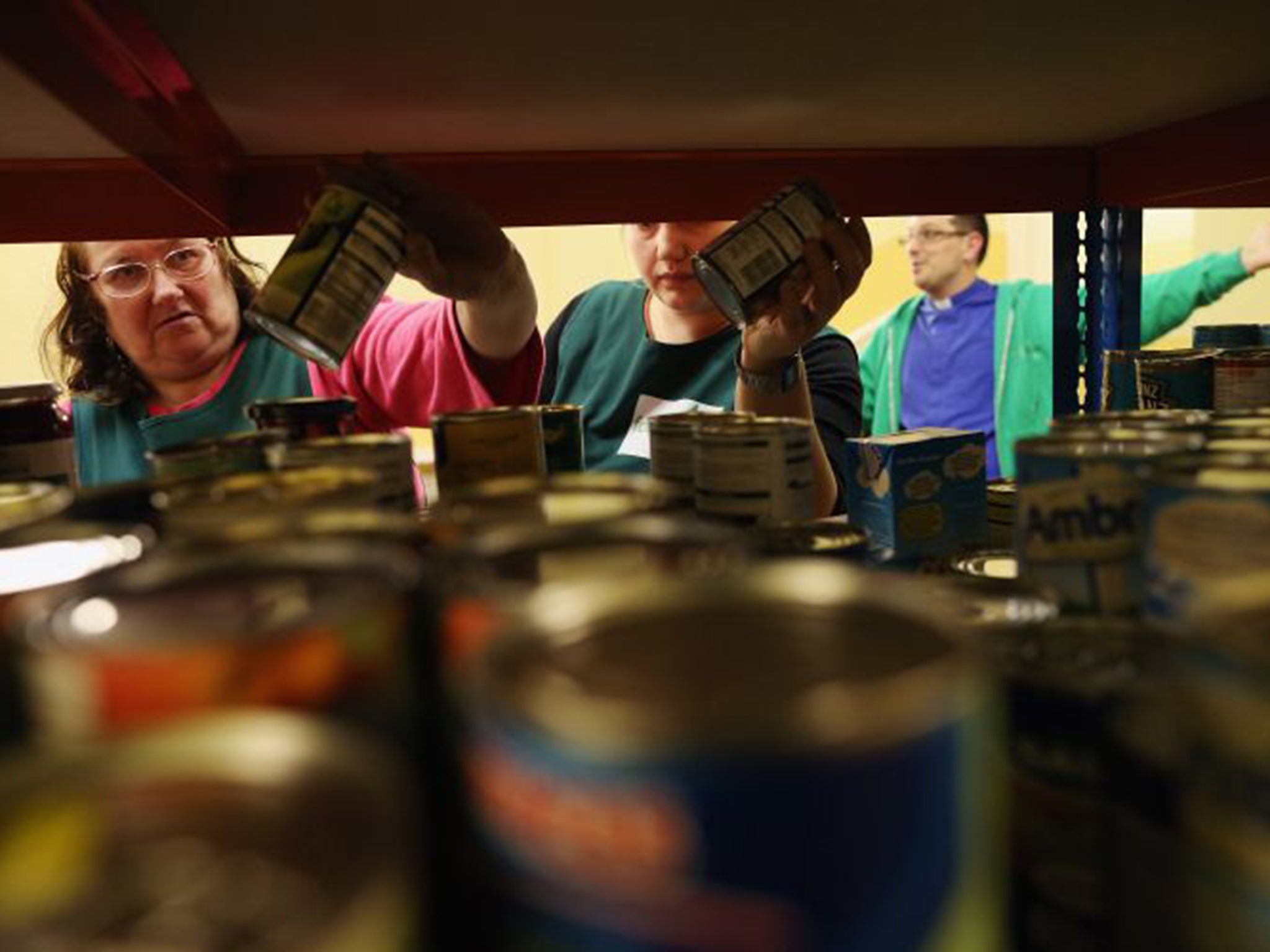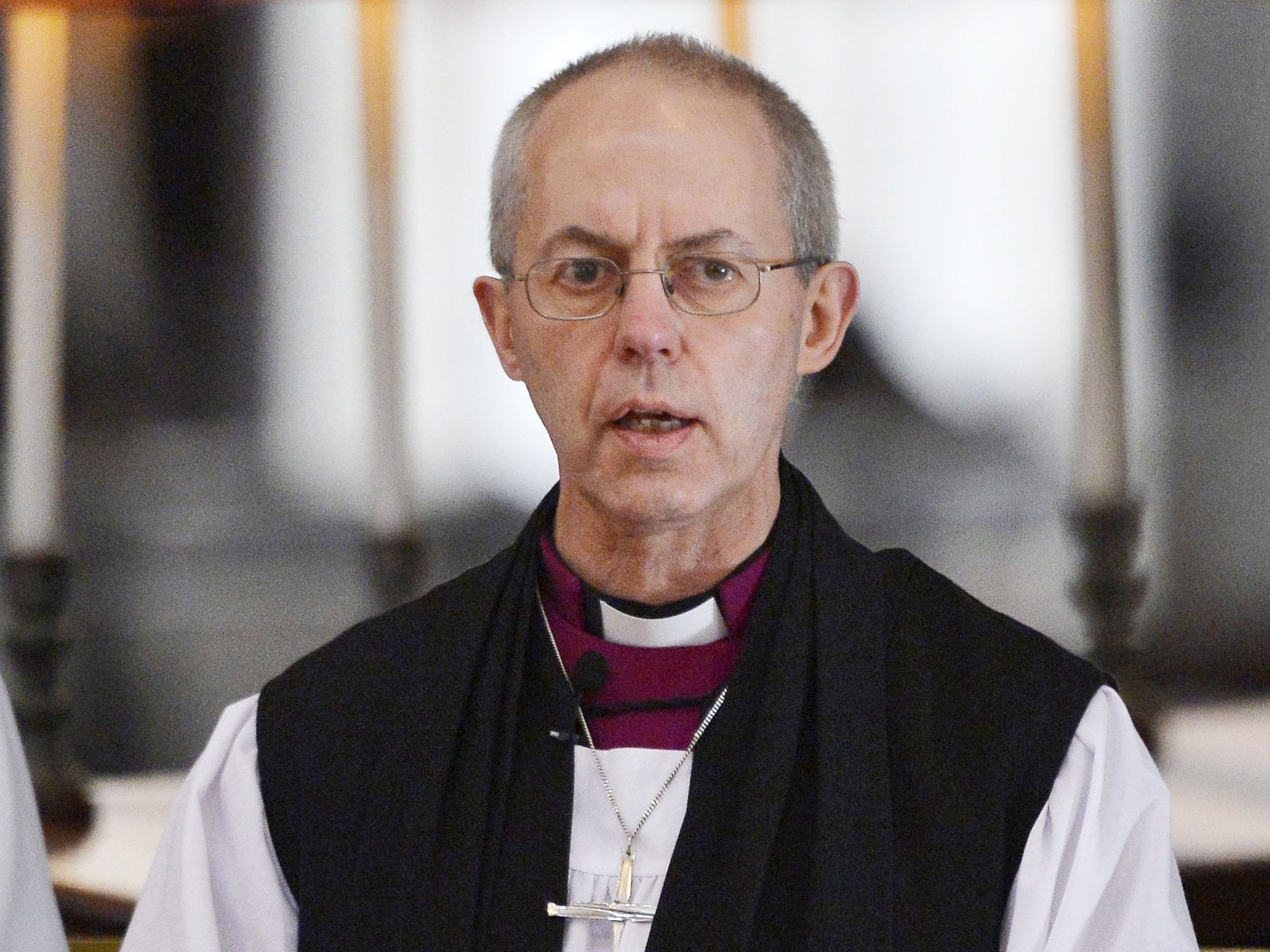Food banks: Archbishop of Canterbury Justin Welby urges politicians to face up to Britain's hunger
Archbishop joins campaigners to launch report into new phenomenon of food banks

Your support helps us to tell the story
From reproductive rights to climate change to Big Tech, The Independent is on the ground when the story is developing. Whether it's investigating the financials of Elon Musk's pro-Trump PAC or producing our latest documentary, 'The A Word', which shines a light on the American women fighting for reproductive rights, we know how important it is to parse out the facts from the messaging.
At such a critical moment in US history, we need reporters on the ground. Your donation allows us to keep sending journalists to speak to both sides of the story.
The Independent is trusted by Americans across the entire political spectrum. And unlike many other quality news outlets, we choose not to lock Americans out of our reporting and analysis with paywalls. We believe quality journalism should be available to everyone, paid for by those who can afford it.
Your support makes all the difference.Politicians from all parties will today be challenged to confront the “simple but devastating fact that hunger stalks this country”.
The Archbishop of Canterbury, Justin Welby, will join the veteran anti-poverty campaigner Frank Field and others to launch a report into the “new phenomenon” that families are driven to relying on food banks because of failures in the welfare system.
Many families are so desperate to avoid being evicted for rent arrears, or having their gas or electricity cut off that “they go without food and therefore see food banks as reintroducing that buffer in their finances which many have lost,” the report’s authors warn. They call for government backing to set up a new network called Feeding Britain, to co-ordinate the work of food banks and other voluntary organisations and charities – which currently receive just 2 per cent of the 4.3 million tonnes of waste food generated by the food industry every year. Praising the volunteers who run the food banks, the Archbishop wrote in yesterday’s Mail on Sunday: “This extraordinary achievement has been done without the assistance of central government. If the Prime Minister wants to meet his Big Society, it is here.”
The report, Feeding Britain, by the All-Party Parliamentary Inquiry into Hunger in the UK, is careful to avoid party politics, and so does not mention cuts to the welfare system introduced by the present Government, such as the “bedroom tax” – but it is scathing about the alleged inefficiency of the Department for Work and Pensions. “Our evidence shows that the present [welfare] system is cumbersome, complicated and fails to respond effectively,” the report says. “We heard that personal documents including birth certificates and medical records sent as part of an application for benefit had gone missing within the department.”
Mr Field said: “The most worrying aspect is the sheer inability of the department to deliver benefits efficiently and accurately. Some families wait… 13 weeks for their benefits to be processed, and this is a benefit where people are eligible because they have got no other income.”

The inquiry team also criticises the way sanctions are imposed for some claimants who unintentionally fail to follow the rules. While it acknowledges there are people who cheat the system, others have been punished because they did not understand the rules, or for trivial reasons – including one man sanctioned for writing on the wrong side of a form.
The report criticises the way the poor are made to pay more for other basic necessities, such as electricity, through pre-payment meters, because they cannot afford the direct debit payments that the better-off use to reduce their bills. The authors heard evidence that people can be charged up to 41p a minute for calls to their utility companies, or the Work and Pensions department, if they have a query about their bills or benefits.
Nick Clegg said yesterday he agreed with the report’s authors that there should be a “traffic light” system so that those who unintentionally break the rules for the first time can be warned rather than sanctioned.
Join our commenting forum
Join thought-provoking conversations, follow other Independent readers and see their replies
Comments